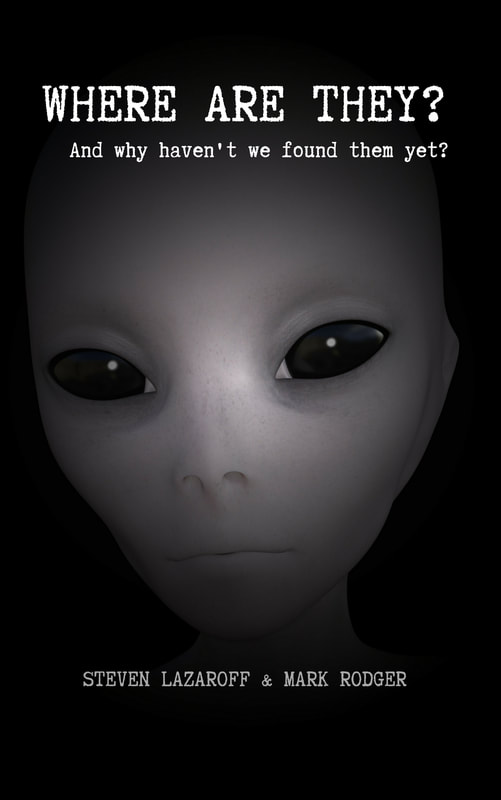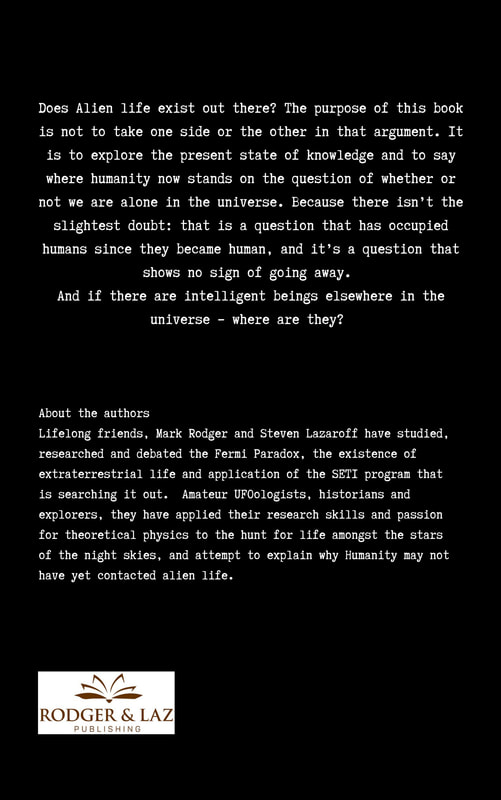|
Well, we are on the verge of releasing another work. A great study in the Fermi Paradox. Below is a short excerpt of the work in progress. Tentative release date is on Aug 15th, 2018. Stay tuned here for more info.
The possibility of extra-terrestrial life has gripped humans for as long as anyone knows. The War of the Worlds, encouraged by the idea (now known to be false) that there were artificial canals on Mars, placed life as close as that. And now we know that Mars has permafrost. Permafrost means water. Water means the possibility of life. There’s no expectation that something resembling a person will be swimming in it. What’s more likely – or, at least, possible – is some forms of bacteria. But a bacterium is life. Its existence would mean that the conditions for life to develop had existed elsewhere than on Earth. And if bacteria can develop, then who’s to say that there isn’t, somewhere, a soccer team competing for another planet’s World Cup? In fact, bacteria on Mars wouldn’t answer the big question. Rocks disturbed by huge meteor and asteroid impacts have travelled between the two planets. There’s nothing to say that bacteria on Mars did not get there from Earth. Come to that, there’s nothing to say that intelligent life did not develop on Earth as a result of primitive bacteria that travelled from Mars and found better conditions for development here. Because the big question is: has life developed from scratch in more than one place in the universe? It’s a question scientists are wary of. Charles Darwin, when he mapped out the way that life forms evolved, carefully avoided any mention of where they came from. He didn’t talk about God, and nor did he talk about blind chance. There are scientists who will say that even the simplest lifeforms are so complex that it is almost impossible that the sequence of processes that led to formation of the first bacterium was ever reproduced elsewhere in the universe, and so we are alone. And there are others who say, ‘If it’s that complex, how could it have happened by accident? And if it was planned, by whom? And by what stretch of arrogance would earthlings claim that it was planned only once, and uniquely to this planet? Fred Hoyle and N. Chandra Wickramasinghe said that it was impossible that life could have started by chance. The odds, they said, amounted to one chance in 10 to the power of 40,000. Since most ordinary humans can’t visualise such a number, they helpfully added that it was “an outrageously small probability.” Richard Dawkins disagrees and treats with contempt anyone who believes that the development of life could even theoretically have been anything but an accident. Stephen Hawking, in his last book before he died, said that the universe was not created by God. Instead, it was the inevitable result of the laws of nature. Yes, Stephen. Quite so. And the laws of nature – where did they come from? The purpose of this book is not to take one side or the other in that argument. It is to explore the present state of knowledge and to say where humanity now stands on the question of whether or not we are alone in the universe. Because there isn’t the slightest doubt: that is a question that has occupied humans since they became human, and it’s a question that shows no sign of going away. And if there are intelligent beings elsewhere in the universe – where are they?
0 Comments
Leave a Reply. |
AuthorMark Rodger and Steven Lazaroff live in Canada. Archives
July 2020
Categories |


 RSS Feed
RSS Feed